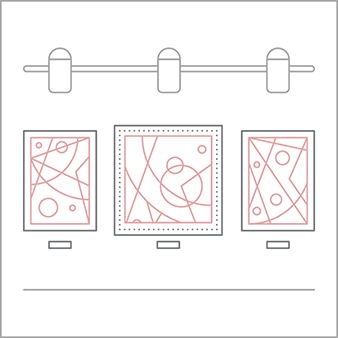Deng Wei: Comedy of Painting
Painting - to borrow Hegel's philosophical assertion of history - happened twice, the first as true drama, the second as comedy. In the former, painting blossomed to build its history, acquiring its discipline and ontology, whereas in the latter, the medium turns on itself, or more precisely, probes, ridicules, and satirizes its own ontology. Between what to paint and how to paint it, Hegel discovered early on that "What the work of art now inspires in us, apart from its immediate enjoyment, also demands our judgment; we simultaneously contemplate the workÔÇÖs content and its means of expression, and whether the what and how is fitting or not."
In this sense, claiming Deng Wei's paintings as "comedy" is not only grounded on his subjects, stories, and iconography, despite their compelling comedic effect, ranging from the Tang Monk and his disciples lying on the beach on vacation, the Chinese conch maiden with mermaid's tail in the field of snails, and how generalized and evocative he depicts the urban police, sanitation workers and beggars. The actual intrigue in Deng's paintings is the way in which he deliberately creates the "tease" between the language and the content of his paintings, which affords intellectual relaxation and appreciation. Yes, comedy, in particular, should avoid the provision of an ÔÇ£immersiveÔÇØ experience, instead placing the spectator on the judicial stand to "laugh at" and "mock."

Recommended for you
Painting - to borrow Hegel's philosophical assertion of history - happened twice, the first as true drama, the second as comedy. In the former, painting blossomed to build its history, acquiring its discipline and ontology, whereas in the latter, the medium turns on itself, or more precisely, probes, ridicules, and satirizes its own ontology. Between what to paint and how to paint it, Hegel discovered early on that "What the work of art now inspires in us, apart from its immediate enjoyment, also demands our judgment; we simultaneously contemplate the workÔÇÖs content and its means of expression, and whether the what and how is fitting or not."
In this sense, claiming Deng Wei's paintings as "comedy" is not only grounded on his subjects, stories, and iconography, despite their compelling comedic effect, ranging from the Tang Monk and his disciples lying on the beach on vacation, the Chinese conch maiden with mermaid's tail in the field of snails, and how generalized and evocative he depicts the urban police, sanitation workers and beggars. The actual intrigue in Deng's paintings is the way in which he deliberately creates the "tease" between the language and the content of his paintings, which affords intellectual relaxation and appreciation. Yes, comedy, in particular, should avoid the provision of an ÔÇ£immersiveÔÇØ experience, instead placing the spectator on the judicial stand to "laugh at" and "mock."
Artists on show
Contact details















